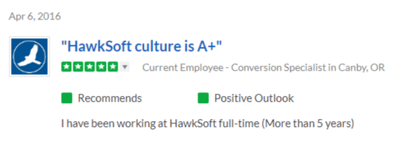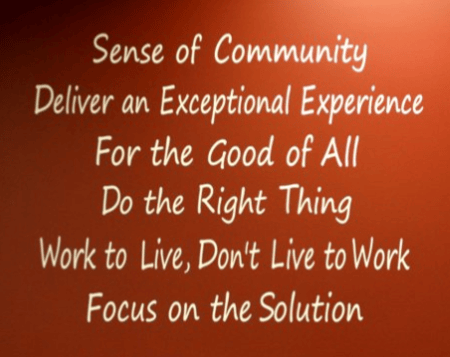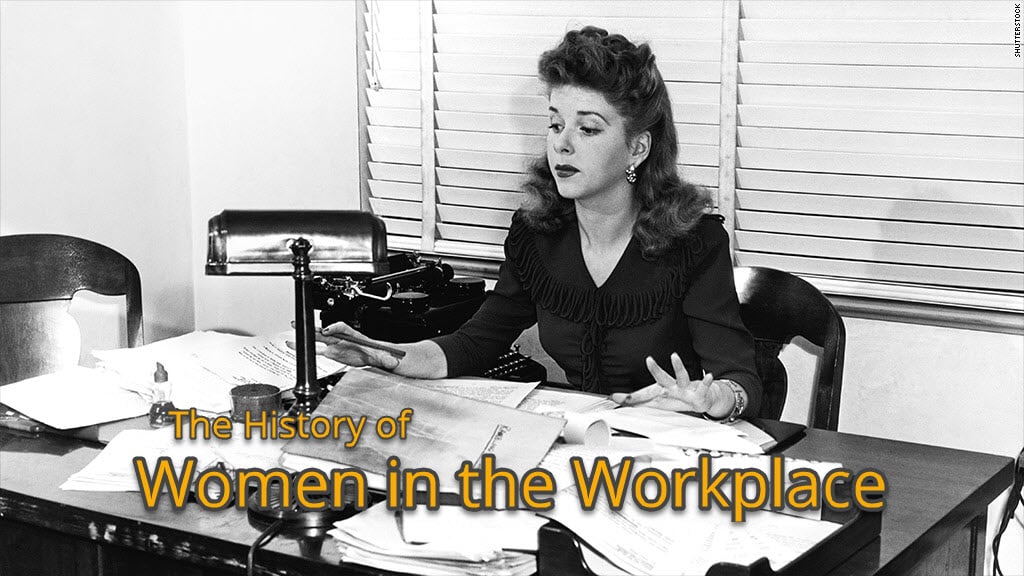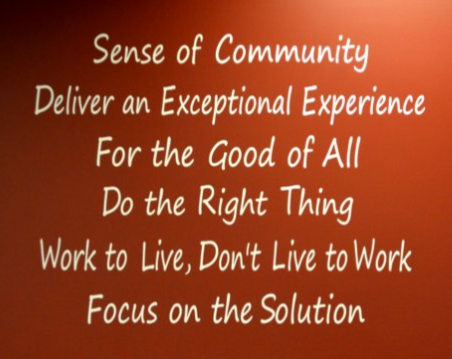HawkSoft Professional Services Team
Open secret: HawkSoft’s unique company culture is a key driver of our success. Our culture has landed us a three-peat of the Top 100 Workplaces in Oregon award (2015 – 2017), a 4.4-star rating on Glassdoor, and an above average Net Promoter Score of 41 .
Uncomfortable candid secret: This article was tough to write because it felt like we’re tooting our own horn. That’s not a core value at HawkSoft. However, we are compelled to break this rule because many of our customers have asked how we manage to grow a company while also maintaining our original core values? It’s in this spirit that we share an inside look at HawkSoft’s culture. We aim to share the evolution and passion behind our family-like culture in hopes that it may inspire your own agency’s culture.
Why is company culture important?
“The key to achieving customer happiness, as in customers who want to do business with you again and again, is to focus on employee happiness first.”
Jason Whitman, VP at JustWorks
HawkSoft has learned through our experiments that a strong company culture affects the success of the business. It often begins with employees’ happiness, which in turn influences customer satisfaction.
HawkSoft creates a positive workplace atmosphere where employees are committed to workplace standards. Employees say they feel valued and their contributions to HawkSoft’s mission are recognized. This positivity trickles down to company performance at every level, including these four areas outlined in Importance of a Healthy Company Culture:
1. Employee Retention
When employees feel valued they have higher morale and positive attitudes, reducing turnover. According to the Bureau of Labor Statistics, the median employee tenure as of January 2016 is 4.2 years. At HawkSoft, even with a 27% growth in our employee count this year, over 30% of our team has a tenure of 5 years or more.
HawkSoft was privileged to have Fred (Fwed) McGrath for over 13 years before he retired. He helped shape our culture by racing colleagues to answer support calls and using his legendary humor to train new customers.
2. Productivity
Studies correlate increased employee productivity with improved financial health and increased profits. HawkSoft is witness to how a positive environment encourages employee engagement, project creativity and ownership, and increased productivity and profits.
3. Reputation
Happy employees mean happy customers. Happy customers leave positive reviews. Positive reviews lead to the foundations of a reputable company.
Review sites like Glassdoor play a large role during the recruitment process and influencing the reputation of a company.
Factoids
- The average job seeker reads at least six reviews in the process of forming an opinion on a company. (Source: Glassdoor US Site Survey)
- 69% would not take a job with a company that had a bad reputation, even if they were unemployed! (Source: Corporate Responsibility Magazine / Allegis Group Services Study)
A well-regarded company helps attract quality, skilled employees, and allows a company “to charge a higher price for products and services and increases the value of the company in the financial market.” (smallbusiness.chron.com)
HawkSoft recognized this trend and is honored to have a 4.4-star rating on Glassdoor. This beats the average company rating of 3.3 stars by 1 whole point!


Another tool to measure your company reputation and satisfaction among customers is the Net Promoter Score (NPS). Use the Net Promoter Score survey to increase customer retention which is proven to increase profits. HawkSoft recently conducted our own NPS survey, resulting in an above average score of 41 (8 points higher than Survey Monkey’s technology benchmark of 33 and 28 points higher than their global average of 13). This score strongly supports the correlation between happy, valued employees and happy customers.
4. Quality Products and Services
Companies with strong cultures hold themselves to high standards for the products and services they sell. Our employees’ ability to deliver on these high standards has helped our brand carve a unique position in the industry. Here’s a sample of the accolades our employees have achieved:
- 98% customer satisfaction rate
- 94% first-call resolution when agencies call for help
- 97% of agencies using HawkSoft recommend it to others
- 18 years is the average time agencies stay on our platform
“89% of companies expect to compete mostly on the basis of customer experience, versus 36% four years ago."(Source: Gartner)
How to create a strong culture at your insurance agency
Developing the right company culture for your agency may take years. The good news is that you probably already have a culture but haven’t taken the time to formally define what it is or take control of it. As a result, perhaps your company culture isn’t accurately representing your values.
HawkSoft didn’t formally define our culture and company values until about 13 years into our existence. We knew we had captured something special with the type of employees we hired and the value we placed on workplace happiness. But it needs to be integrated and woven into workplace processes. It needs to be recognized and visible to all employees. We followed many of the techniques outlined in Creating a Positive Insurance Agency Culture as we began that process.
 (Source: Dilbert.com)
(Source: Dilbert.com)
HawkSoft’s 4-step guide to define company culture
Step 1 - Involve employees
You can either begin with a top-down approach, or, you might consider the rising popularity of “crowdsourcing”, which is a bottoms-up process involving staff input from the junior employee on up to the executive. Either way:
Get Leadership buy-in
Employees have to believe that executives will support the development and ongoing belief of a healthy company culture, or it won’t work. Employees need to feel valued by leadership.
Factoid
- Every new employee receives a personalized wood name plate, hand-made by our CEO, Paul Hawkins.
Form committees
Choose a randomly selected group of employees to help lead, organize, and coordinate the defining of your culture. Their role is to serve as liaisons among employee groups, and collect and communicate all ideas. For example, HawkSoft created three committees, each made up of employees and one executive. The executive members served only as facilitators. These committees began outlining our beliefs and core values. Today, we have a robust Culture Club whose sole responsibility is to keep our culture in check by offering suggestions and proposing activities that nurture our unique culture.
Don’t let budget get in the way
Money constraints shouldn’t get in the way of fostering culture. The most creative ideas are often born in organizations with tight budgets. Think Christmas cubicle decorating contests, dollar store lunchroom tablecloths and games/puzzles, Oscar Winners contest, Foosball Office Olympics (mini table was a donated white elephant gift), Munchie Monday popcorn bar to celebrate successful milestones, cook-off contests, and so on.
Office “Oscar Winners” Contest
And the winner is…

The internalization of our culture started by capturing the HawkSoft story on video. Every time a new employee is hired, they also hear the HawkSoft story from Paul Hawkins himself, in person. Employees learn very quickly how deep the Hawkins’ roots are and the desire for all to share in the beliefs and mission of the company.
Sean Hawkins, HawkSoft’s Vice President of Development and co-founder, says,
“Employees are often disconnected from the roots of a company. They don’t internalize the value of a company until they understand the company’s history and mission. Employees need to be a part of your story, not just hired help. All of our successes, together, have gotten us to where we are today.”

Sean Hawkins helping Ken Scheel in the customer service trenches.
(Editor's note: This is a candid photo capturing their smiles while working with a customer.)
Step 3 - Define your core values
Core values are what support the vision, shape the culture, and reflect the “fundamental beliefs of a person or organization. These guiding principles dictate behavior and can help people understand the difference between right and wrong. Core values also help companies determine if they are on the right path and fulfilling their goals by creating an unwavering guide.” (yourdictionary.com)
HawkSoft’s core values are the backbone of our culture. They represent what we believe and what we stand for. But core values mean nothing unless executives live by them, employees understand them, customers get to experience them, and company goals and objectives embrace them.
Glenn Smith of Executive Coaching shares 7 reasons a business owner needs to identify and live out the core values of its company.
Step 4 - Integrate core values into employee behavior and processes
“Companies who really live their values integrate them into their talent management processes. You’ll see those values showing up in everyday behaviors and important decisions, not just displayed on the walls and coffee mugs.” (Source: themuse.com)

While HawkSoft core values are displayed on the walls of our office, they run much deeper than white vinyl words on red paint.
They are a daily reminder to employees of our mission to each other and to our customers. A 7th value, Attitude of Gratitude, was added this year and will soon join the other six inspirational values that guide our company decisions and employee actions.
HawkSoft’s 6-point handbook on how to integrate core values into company culture and processes shares insights of how we've successfully woven our beliefs into the fabric of our company and every employee, in these six areas:
- Recruiting
- Atmosphere
- Employee Involvement
- Professional Development
- Employee Appreciation, Recognition and Fun
- Team Meetings
Core value integration drives our product development, messaging, sales tactics, customer service demeanor, and staff meetings.
A significant, yet often unrecognized ROI of core value integration, is the type of customer base you acquire and retain. HawkSoft is both thrilled and humbled to have built relationships with some of the most loyal customers who resonate with our culture. Fourteen of our employees who recently returned from the 2018 HawkSoft User Group (HUG) annual convention can testify to the powerful magnetism a strong company culture has on attracting similar customers. We are fortunate to have agents whose personalities and business philosophies align so closely to our core values and culture. These user group meetings remind us of the power of relationships and how we've created a special community among employees and customers that can't be found anywhere else in the industry. Paul Hawkins is known to say, “birds of a feather flock together.” 
Sean Hawkins, Dan Sage, and Paul Hawkins at HUG 2018.
Dan’s agency has been a client of HawkSoft since 2010.
Take control of your agency’s 5-star culture
There is always room for improvement. HawkSoft has witnessed many highs and lows along the way, but one thing is constant: Our strong company culture positively affects the success of our business and our customers’ happiness. The two have a symbiotic relationship.
Take time to harness and build your company culture. Involve your employees. Know your story. Share it often. Define your core values and integrate them into your employee management processes.
Simon Sinek, a well-respected motivational speaker, summarizes it well:
“Customers will never love a company until the employees love it first.”

.jpg)



